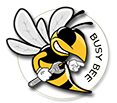Welcome to the Tweaking4All community forums!
When participating, please keep the Forum Rules in mind!
Topics for particular software or systems: Start your topic link with the name of the application or system.
For example “MacOS X – Your question“, or “MS Word – Your Tip or Trick“.
Please note that switching to another language when reading a post will not bring you to the same post, in Dutch, as there is no translation for that post!
[Solved] Some basic Linux commands ...
(@hans)
Famed Member Admin
Joined: 12 years ago
Posts: 2880
Topic starter
May 1, 2022 4:30 AM
I did find a short list of a few basic Linux commands - familiar for me, but unknown to many.
So just for reference, I'm posting this here.
Viewing, copying, moving and deleting files
| ls |
Display the contents of the current directory |
| ls -a |
Display also hidden files and hidden directories |
| cp filename /path/dir_name |
Copy filename into directory /path/dir_name |
| cp -r dir_name /path/dir_name2 |
Copy the entire dir_name into /path/dir_name2 |
| cp filename1 filename2 /path/dir_name |
Copy filename1 and filename2 into /path/dir_name |
| rm name |
Remove a file or directory called name |
| rm -r name |
Remove an entire directory as well as its included files and subdirectories |
| mv filename /path/dir_name |
Move filename into /path/dir_name |
| mv filename1 filename2 |
Rename filename1 to filename2 |
| cat filename |
Display filenames contents |
| more filename |
Display filename in pages. Use spacebar to view next page |
| head filename |
Display filenames first 10 lines |
| head -15 filename |
Display filenames first 15 lines |
| tail filename |
Display filenames last 10 lines |
| tail -15 filename |
Display filenames last 15 lines |
| pwd |
Display current directory |
| cd /path/dir_name |
Change to directory /path/dir_name |
| cd .. |
Go 1 directory up |
| mkdir dir_name |
Create directory dir_name |
| rmdir dir_name |
Delete directory dir_name |
| rmdir -rf dir_name |
Delete directory dir_name with all its content (careful!) |
Finding files and text within files
| updatedb |
Update (create first time used) a database ofall files under the root directory / |
| locate filename |
Find file filename searching in the database |
| find / -name filename |
Starting from the root directory search for the file called filename |
| find / -name *filename |
Same as above but search for file containing the string filename |
| grep string /path/dir_name |
Starting from /path/dir_name search for all files containing string |
| which application_name |
Search $path for application app_name |
| whereis application_name |
Search $path, man pages and source files for application_name |
Dealing with Archives
Decompress
| tar -xzf filename.tgz |
Decompress tzg file |
| tar -xzf filename.tar.gz |
Decompress tar.gz file |
| tar -xjf filename.tar.bz2 |
Decompress tar.bz2 file |
Compress
| tar -czf filename.tar /path/dir_name |
Compress directory /path/dir_name to filename.tar |
| gzip -c filename > filename.gz |
Compress /path/dir_name to filename.tar.gz |
| bzip2 -c filename > filename.bz2 |
Compress /path/dir_name to filename.tar.bz2 |
Using rpm files
| rpm -hiv package.rpm |
Install rpm called package.rpm |
| rpm -hiv –force package.rpm |
Install rpm called package.rpm by force |
| rpm -hUv package.rpm |
Upgrade rpm called package.rpm |
| rpm -e package.rpm |
Delete rpm called package.rpm |
| rpm -qpil package.rpm |
List files in not-installed rpm called package.rpm |
| rpm -ql package.rpm |
List files in installed rpm called package.rpm |
| rpm -q str |
List installed rpms containing the string str |
| rpm -qf /path/application_name |
Display the rpm that contains application application_name |
Starting and Stoping
| startx |
Start the X system |
| shutdown -h now |
Shutdown the system now and do not reboot |
| halt |
Same as above |
| shutdown -r now |
Reboot |
| reboot |
Same as above |
| shutdown -r +10 |
Reboot in 10 minutes |
Mounting filesystems
| mount -t vfat /dev/sd(a)(1) /mnt/c_drive |
Mount the first partition 1 of the first hard disk drive a which is in fat32 vfat dormat under /mnt/c_drive directory |
| mount -t iso9660 /dev/cdrom /mnt/cdrom |
Mount cdrom under /mnt/cdrom directory |
| umount /mnt/hda1 |
Unmout the above |
User Administration
| users |
Display users currently logged in |
| adduser username |
Create a new user called username |
| passwd username |
Define password for user called username |
| who |
List logged-in users |
| whoami |
Display current user |
| finger username |
Displays info about user username |
| su |
Log in as root from current login |
| su – |
Log in as root from current login and take root’s path |
| exit |
Exit from console login (ie, logout). |
Processes
| command |
Execute command in the foreground |
| command & |
Execute command in the background |
| ctrl+z |
Suspend a program |
| ctrl+c |
Interrupt a program |
| ctrl+d |
exit shell / terminals |
| ps |
List all processes |
| kill -9 pid |
Kill process with id pid (careful!) |
| top |
Monitor processes in real time |
Networking
| hostname |
List the system’s hostname |
| ifconfig |
Set/Display network information |
| host ip |
Resolves ip’s hostname |
| ping ip/hostname |
Check if ip/hostname is reachable |
| traceroute ip/hostname |
Find network path to ip/hostname |
System Information
| uname -a |
General system information |
| fdisk -l |
List partition tables |
| cp filename /path/dir_name |
Copy filename into directory /path/dir_name |
| df -T -h |
List filesystem disk space usage |
| lspci |
List PCI devices |
| lsusb |
List USB devices |
| free -m |
Display RAM+Swap usage |
Compile a simple C program
| gcc -o output file.c |
Compile a C program |
| ./output |
Run a C program you have compiled |
| g++ -o output file.cpp |
Compile a C++ program |
| ./output |
Run a C++ program you have compiled |
| ./configure && make && su -c ‘make install’ |
Configure, compile and install a program with Makefile |

